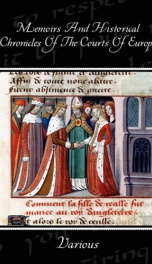Virgil

François-Marie Arouet (November 21, 1694 – May 30, 1778), better known by the pen name Voltaire, was a French Enlightenment writer, essayist, and philosopher known for his wit and his defense of civil liberties, including both freedom of religion and free trade. Voltaire was a prolific writer and produced works in almost every literary form including plays, poetry, novels, essays, historical and scientific works, more than 20,000 letters and more than 2,000 books and pamphlets. He was an outspoken supporter of social reform, despite strict censorship laws and harsh penalties for those who broke them. A satirical polemicist, he frequently made use of his works to criticize Catholic Church dogma and the French institutions of his day. Voltaire was one of several Enlightenment figures (along with Montesquieu, John Locke, Thomas Hobbes, and Jean-Jacques Rousseau) whose works and ideas influenced important thinkers of both the American and French Revolutions. François Marie Arouet was born in Paris, the youngest of the five children[1] (and the only one who survived) of François Arouet (1650–January 1, 1722), a notary who was a minor treasury official, and his wife, Marie Marguerite d'Aumart (ca. 1660–July 13, 1701), from a noble family of the Poitou province. Voltaire was educated by Jesuits at the Collège Louis-le-Grand (1704–11), where he learned Latin and Greek; later in life he became fluent in Italian, Spanish and English.[2] By the time he left college, Voltaire had decided he wanted to be a writer – however, his father wanted him to become a lawyer. Voltaire, pretending to work in Paris as an assistant to a lawyer, spent much of his time writing satirical poetry. When his father found him out, he sent Voltaire to study law, this time in the provinces. Nevertheless, he continued to write, producing essays and historical studies not always noted for their accuracy, though most were. Voltaire's wit made him popular among some of the aristocratic families he mixed with. Voltaire's father then obtained a job for him as a secretary to the French ambassador in the Netherlands, where Voltaire fell in love with a French refugee named Catherine Olympe Dunoyer. Their scandalous elopement was foiled by Voltaire's father and he was forced to return to France. Most of Voltaire's early life revolved around Paris. From early on, Voltaire had trouble with the authorities for his energetic attacks on the government and the Catholic Church. These activities were to result in numerous imprisonments and exiles. He allegedly wrote satirical verses about the aristocracy and one of his writings about the Régent led to him being imprisoned in the Bastille for eleven months. While there, he wrote his debut play, Œdipe. Its success established his reputation. The name "Voltaire", which the author adopted in 1718 both as a pen name and for daily use, is an anagram on "AROVET LI," the Latinized spelling of his surname, Arouet, and the initial letters of the sobriquet "le jeune" ("the younger").[3] The name also echoes in reverse order the syllables of the name of a family château in the Poitou region: "Airvault". The adoption of the name "Voltaire" following his incarceration at the Bastille is seen by many to mark Voltaire's formal separation from his family and his past. Richard Holmes[4] supports this derivation of the name, but adds that a writer such as Voltaire would have intended it to also convey its connotations of speed and daring. These come from associations with words such as "voltige" (acrobatics on a trapeze or horse), "volte-face" (a spinning about to face one's enemies), and "volatile" (originally, any winged creature). "Arouet" was not a noble name fit for his growing reputation, especially given that name's resonance with "à rouer" ("for thrashing") and "roué" (a "debauchee"). Voltaire is known to have used at least 178 separate pen names during his lifetime of writing.[5] The aptitude for quick, perceptive, cutting, witty and often scathingly critical repartee for which Voltaire is known today made him highly unpopular with many of his contemporaries, including much of the French aristocracy. These sharp-tongued retorts were responsible for Voltaire's exile from France, during which he resided in England. After Voltaire offended the young French nobleman Chevalier de Rohan in late 1725, the aristocratic Rohan family obtained a royal lettre de cachet, an irrevocable and often arbitrary penal decree signed by the French King (Louis XV, in the time of Voltaire) that was often bought by members of the wealthy nobility to dispose of undesirables. They then used this warrant to force Voltaire first into imprisonment in the Bastille and then into exile without holding a trial or giving him an opportunity to defend himself.[6] The incident marked the beginning of Voltaire's attempts to improve the French judicial system. Voltaire's exile in England lasted over two years, and his experiences there greatly influenced many of his ideas. The young man was impressed by Britain's constitutional monarchy in contrast to the French absolute monarchy, as well as the country's support of the freedoms of speech and religion. He was also influenced by several of the neoclassical writers of the age, and developed an interest in earlier English literature, especially the works of Shakespeare, still little known in continental Europe at the time. Despite pointing out his deviations from neoclassical standards, Voltaire saw Shakespeare as an example French writers might look up to, since drama in France, despite being more polished, lacked on-stage action. Later, however, as Shakespeare's influence was being increasingly felt in France, Voltaire would endeavour to set a contrary example with his own plays, decrying what he considered Shakespeare's barbarities. After almost three years in exile, Voltaire returned to Paris and published his views on British attitudes towards government, literature and religion in a collection of essays in letter form entitled the Lettres philosophiques sur les Anglais (Philosophical Letters on the English). Because he regarded the British constitutional monarchy as more developed and more respectful of human rights (particularly religious tolerance) than its French counterpart, these letters met great controversy in France, to the point where copies of the document were burnt and Voltaire was again forced to leave France. Voltaire's next destination was the Château de Cirey, located on the borders of Champagne and Lorraine. The building was renovated with his money, and here he began a relationship with the Marquise du Châtelet, Gabrielle Émilie le Tonnelier de Breteuil (famous in her own right as Émilie du Châtelet). Cirey was owned by the Marquise's husband, Marquis Florent-Claude du Chatelet, who sometimes visited his wife and her lover at the chateau. The relationship, which lasted for fifteen years, had a significant intellectual element. Voltaire and the Marquise collected over 21,000 books, an enormous number for the time. Together, they studied these books and performed experiments in the "natural sciences" in his laboratory. Voltaire's experiments included an attempt to determine the elements of fire. Having learned from his previous brushes with the authorities, Voltaire began his future habit of keeping out of personal harm's way, and denying any awkward responsibility. He continued to write, publishing plays such as Mérope and some short stories. Again, a main source of inspiration for Voltaire were the years of his British exile, during which he had been strongly influenced by the works of Sir Isaac Newton. Voltaire strongly believed in Newton's theories, especially concerning optics (Newton’s discovery that white light is composed of all the colors in the spectrum led to many experiments at Cirey), and gravity (the story of Newton and the apple falling from the tree is mentioned in Voltaire's Essai sur la poésie épique, or Essay on Epic Poetry). Although both Voltaire and the Marquise were curious about the philosophies of Gottfried Leibniz, a contemporary and rival of Newton, they remained "Newtonians" and based their theories on Newton’s works and ideas. Though it has been stated that the Marquise may have been more "Leibnizian", she did write "je newtonise," which translated means, "I am 'newtoning'" or "I 'newtonise'". Voltaire's book, Eléments de la philosophie de Newton (Elements of Newton's Philosophy), was probably co-written with the Marquise, and describes the other branches of Newton's ideas that fascinated him, including optics and the theory of attraction (gravity). Voltaire and the Marquise also studied history—particularly those persons who had contributed to civilization. Voltaire's second essay in English had been Essay upon the Civil Wars in France. When he returned to France, he wrote a biographical essay of King Charles XII, which marks the beginning of Voltaire's criticism toward established religions. The essay won him the position of historian at the king's court. Voltaire and the Marquise also worked with philosophy, particularly with metaphysics, the branch that dealt with what could not be directly proven: whether or not there was a God, etc. Voltaire and the Marquise analyzed the Bible, trying to discover its validity in their time. Voltaire's critical views on religion are reflected in his belief in separation of church and state and religious freedom, ideas that he had formed after his stay in England. Though deeply committed to the Marquise, Voltaire by 1744 found life at the château confining. On a visit to Paris that year, he found a new love: his niece. At first, his attraction to Marie Louise Mignot was clearly sexual; he wrote her letters (only discovered in 1957) that verged on pornography, such as "My soul kisses yours; my prick, my heart, are in love with you. I kiss your beautiful ass..."[7] Much later, they lived together, perhaps platonically, and remained together until Voltaire's death. Meanwhile, the Marquise also took a lover, the Marquis de Saint-Lambert.[8] After the death of the Marquise in childbirth in September 1749, Voltaire briefly returned to Paris and in 1751 moved to Potsdam to join Frederick the Great, a close friend and admirer of his.[9] The king had repeatedly invited him to his palace, and now gave him a salary of 20,000 francs a year. Though life went well at first - in 1752 he wrote Micromégas, perhaps the first piece of science fiction involving ambassadors from another planet witnessing the follies of humankind- his relationship with Frederick the Great began to deteriorate and he encountered other difficulties. Faced with a lawsuit and an argument with Maupertuis, the president of the Berlin Academy of Science, Voltaire wrote the Diatribe du docteur Akakia (Diatribe of Doctor Akakia) which satirized Maupertuis. This greatly angered Frederick, who had all copies of the document burned and arrested Voltaire at an inn where he was staying along his journey home.
do you like this author?
What readers are saying
What do you think? Write your own comment on this book!
write a commentWhat readers are saying
What do you think? Write your own comment on this author!
write a commentBook list

The Fourth Book of Virgil's Aeneid and the Ninth Book of Voltaire's Henriad
Series:
Unknown
Year:
Unknown
Raiting:
3.5/5
Show more
add to favoritesadd In favorites
Book list

The Fourth Book of Virgil's Aeneid and the Ninth Book of Voltaire's Henriad
Series:
Unknown
Year:
Unknown
Raiting:
3.5/5
Show more
add to favoritesadd In favorites

Aeneas at the site of Rome; observations on the eighth book of the Aeneid
Series:
Unknown
Year:
Unknown
Raiting:
2.5/5
26 31 40
Show more
add to favoritesadd In favorites

Bucolica, Georgica, Aeneis, the works of Virgil. With commentary and appendix for the use of schools and colleges by Benjamin Hall Kennedy
Series:
Unknown
Year:
Unknown
Raiting:
4/5
26
Show more
add to favoritesadd In favorites

The Aeneid of Virgil. With English notes, critical and explanatory, a metrical clavis, and an historical, geographical and mythological index
Series:
Unknown
Year:
Unknown
Raiting:
4.5/5
26
Show more
add to favoritesadd In favorites
What readers are saying
What do you think? Write your own comment on this author!
write a commentif you like Virgil try:
readers also enjoyed
What readers are saying
What do you think? Write your own comment on this author!
write a commentGenre
if you like Virgil try:
readers also enjoyed
Do you want to exchange books? It’s EASY!
Get registered and find other users who want to give their favourite books to good hands!
















